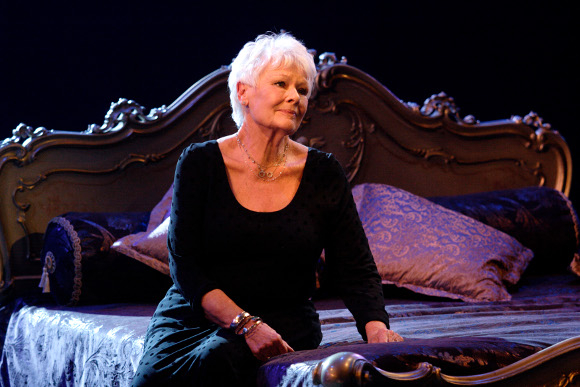Catherine Love: Great gala, but where were the women writers?
The lack of women playwrights showcased by the National Theatre’s 50th anniversary gala was troubling

© Catherine Ashmore
There was something missing from Saturday’s 50th anniversary gala at the National Theatre. Certainly not star names, puppet horses or scenes by David Hare, all of which were out in force throughout the tightly packed two hours and 15 minutes. In its selection of some of the most memorable work to fill its stages, the National offered laughter, tears and some superlative performances. But there was a worrying lack of women.
That’s not to deny that there were chances for brilliant stage actresses such as Dames Maggie Smith and Judi Dench – the latter in particular during a heartbreaking rendition of “Send in the Clowns” – to shine. When it came to the material chosen, however, women were woefully underrepresented. Of the more than 30 short scenes from plays to grace the stages of the National over the last 50 years, just one (London Road) was written by a woman.
There is, arguably, a simple explanation for this gender imbalance: more plays by men than women have been performed on the stages of the National Theatre in its life to date. That is largely to do with the make-up of the classical repertoire, but it is also a troubling symptom of inequalities that persist today. However true this unequal ratio may be, though, I still have a problem with the way that material was selected for the 50th anniversary gala. Firstly, I don’t have an encyclopaedic knowledge of the National Theatre’s output, but it strikes me that the number of plays by men to those by women surely can’t be as hugely disproportionate as the composition of the gala suggests. At least, I really hope not. But secondly, and more importantly, the NT had a choice about how to represent its history, and it chose to virtually erase women from it.
History does not organically come into being; history is actively written. This is even acknowledged by the artistic director in discussing how he condensed 50 years of theatre into a two hour and fifteen minute performance. In the programme notes, Nicholas Hytner denies that the gala is a “best of” selection or a direct reflection of the National’s repertoire over its history, outlining certain artistic and practical principles that led the theatre’s decision making. This, therefore, is a version of the National’s history that its leading figures have very deliberately shaped, meaning there is no reason why they could not have added more scenes written by women. In other words, there’s no excuse.
Mythology is a funny, nebulous thing – particularly in theatre, which is already founded on artifice. But however accurate or inaccurate, the mythology of a theatre building often has a silent hand in what makes it onto its stages. The Royal Court, for instance, has a mythology built on the enshrined central position of the writer, meaning that it is still often the first port of call for new writers hoping to make their mark. If the National Theatre chooses to construct a mythology that shuts out women, then one has to worry about the possibility of redressing inequalities within the building. As George Orwell so memorably put it in Nineteen Eighty-Four, “he who controls the past controls the future”. If this is how the National Theatre chooses to present its past, what does that say about its future?
See Also: Nicholas Hytner's introduction to the gala, and Michael Coveney's blog












